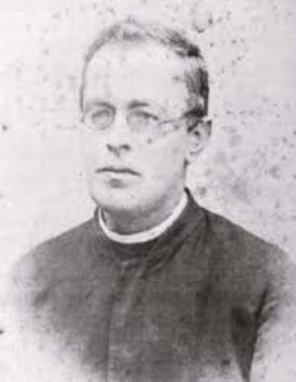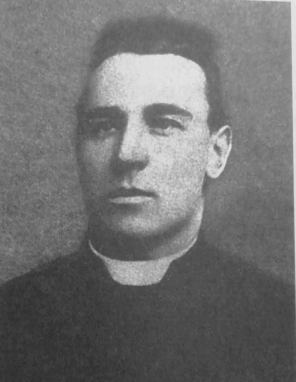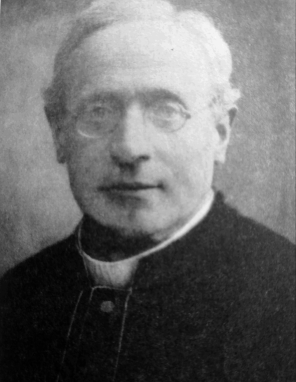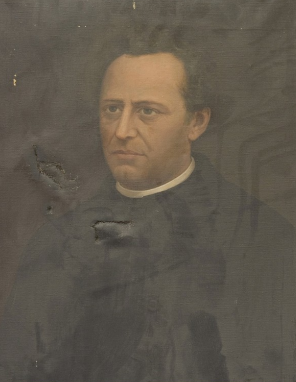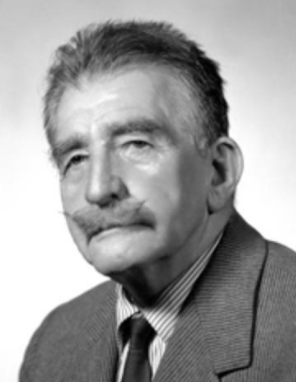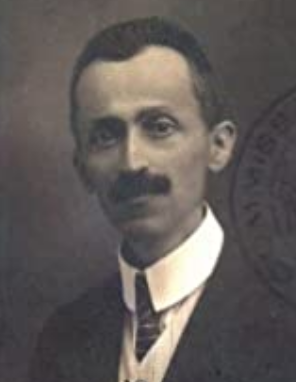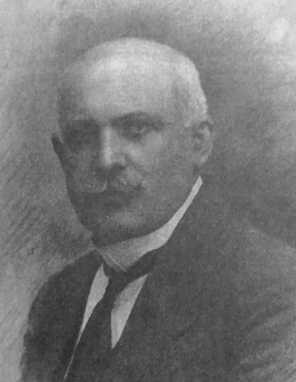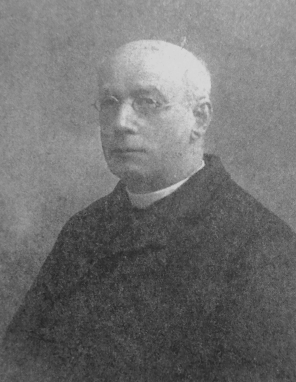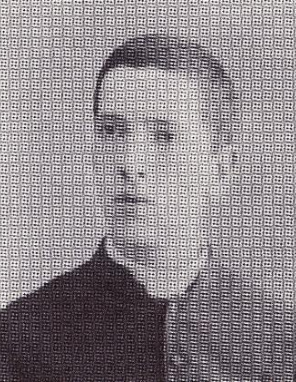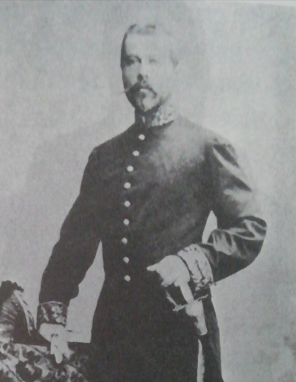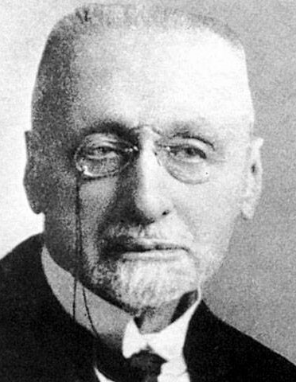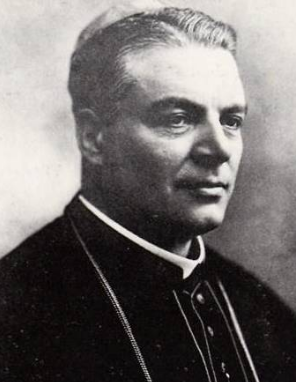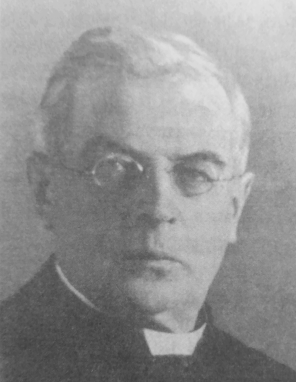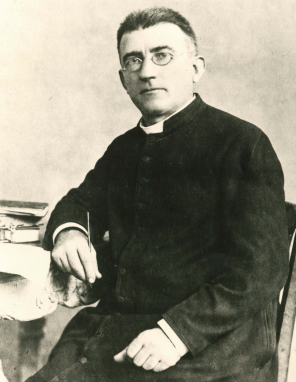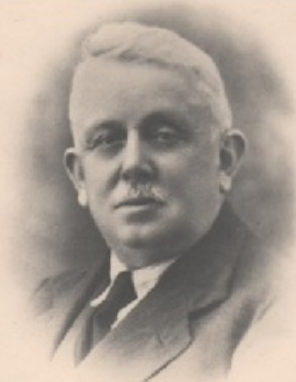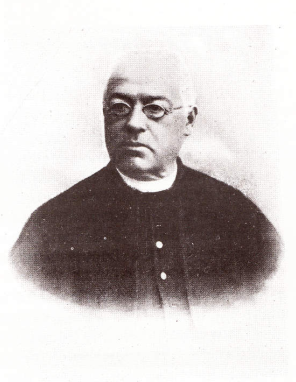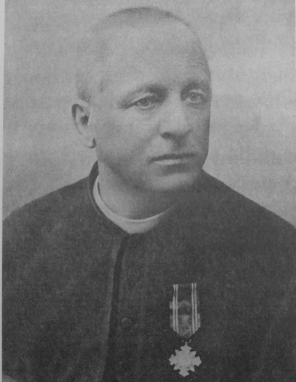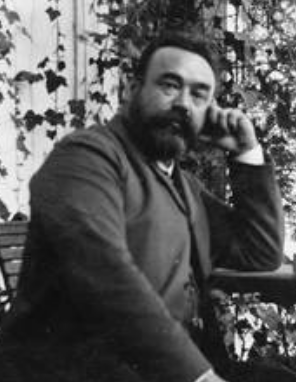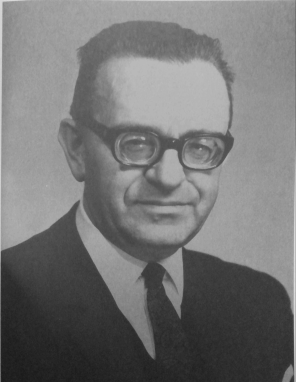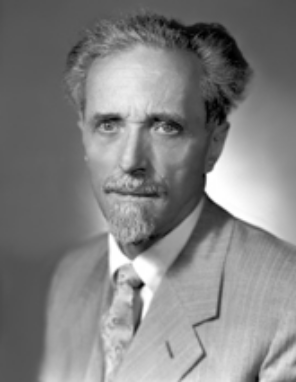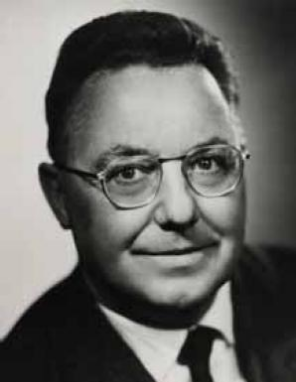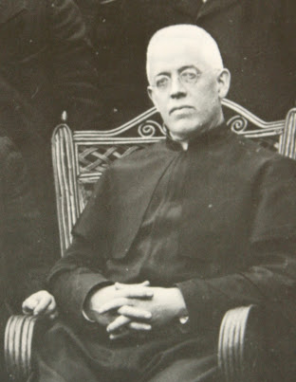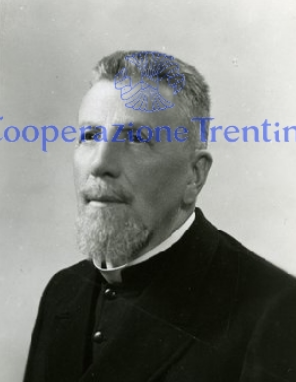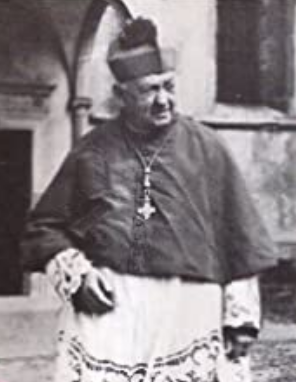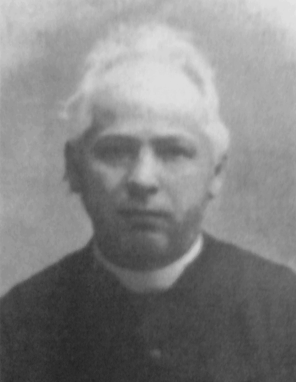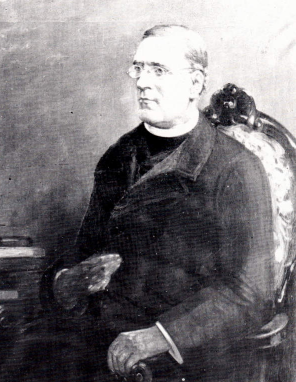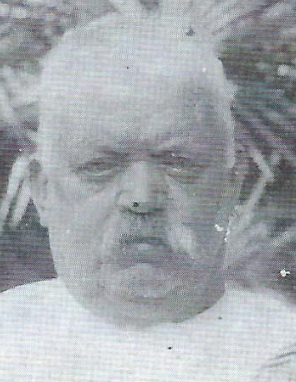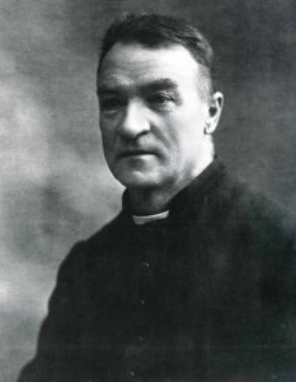Characters
don Luigi Baroldi (1853-1904)
Born in the Giudicarie valley in Fiavé, he was a priest and a cultured man with a passion for social and natural sciences, of which he was a scholar and a populariser. Until 1880 he was sent as a priest to Fassa valley, where he could make further geographical and naturalistic studies on the field. After his experience in the valley he was newly moved to Fiavé and Campi of Riva, where he worked to improve the life conditions of local peasants. He was a friend of don Lorenzo Guetti and following his example he carried out various actions of cooperative promotion and development (credit institution of Tenno and Riva, credit institution of Pranzo). To be continued →
don Felice Beltrami (1858-1902)
Native from Darzo, hamlet of the municipality of Storo, he founded the Famiglia Cooperativa (cooperative society) in Saone in 1893 and the Cassa Rurale (credit institution) in 1895. He was one of the nine members for the constitution of the Federation of cooperative consortia in Trentino, the future Federation of Cooperation in Trentino. In this context we recall his commitment for drafting and approving the statute for the functioning of the Famiglie Cooperative and the participation in the establishment of the bank of Saint Vigilius, that in his opinion had to be set on the German Raiffeisen model. To be continued →
don Clemente Benetti (1857-1923)
Born in Borgo,he was a priest since 1880, the founder of the Cassa Rurale in Scurelle and a scholar of an homogenous accounting method applicable to all credit institutions in Trentino. He participated in the establishment assembly of the Federation of credit institutions and cooperative associations and in the years that followed he was at the top of the confessional cooperative movement. In 1898 he suggested to review the statute of the credit institutions so that their catholic print would appear more explicit and he was against the institution of the bank of Saint Vigilius, which was too far from the ecclesiastical hierarchies in Trentino, ... To be continued →
Omobono Bonomi
He was nominated as an honorary member of the agrarian district Consortium in S.Croce in 1887, he was one of the financiers of the hospital-refuge promoted by don Giovanni Battista Lenzi together with sir Enrico Salvadori, prof. Agostino Bonomi, Serafini Giuseppe, Andrea Baroni, Daniele Speranza, Angelo Serafini and Luigi Lucchesa. The hospital-refuge was introduced in 1902. To be continued→
don Antonio Brusamolin (1837-1904)
He was born in Valsugana, he was a parish priest in Strigno, a professor in Trento at the episcopal middle school and a journalist; he collaborated with the magazine “La Voce Cattolica”, "La Famiglia Cristiana" and he was newspaper editor of the journal "Il Popolo Trentino” from 1888 until 1891, he managed to spread religious ideals with the ideals connected to the Italian national identity of the territory in Trentino. He was a candidate for the Assembly of Innsbruck in Vienna; he was among the first ones to search for an administrative autonomy of Trentino. At the seminary he was one of Lorenzo Guetti’s professors, ... To be continued →
Giuseppe Cappelletti (1860-1926)
He was born in Trento, he was a lawyer and an active personality in the catholic movement of that time: he was promoter and then counsellor of the diocesan Committee and supporter and first president of the catholic Bank in Trentino in 1898, in favour of industrial activities of the area and local investment (this company was constituted as an alternative to the Bank of Saint Vigilius, a project by don Lorenzo Guetti). He held representative roles within the Federation of catholic agricultural-workers’ Societies (SAOC) and the mutual aid central Fund: all activities to approach workers’ problems, felt in particular by the catholic movement. To be continued →
Luigi Carbonari (1880- 1971)
He was born on 3rd October 1880 in the hamlet of Carbonare on the upland of Folgaria, but he lived permanently in Strigno. He went to Vienna, Pavia, Padua for his university studies and eventually to Heidelberg, where he graduated in political science in 1908. In 1902, when he was only 22, as a universitarian student, he established the Credit Institution and the Cooperative Society in Carbonare and he stood out for being a tireless promoter of multiple agricultural cooperatives and a promoter of work on the land of Trentino, he was a leading representative of the local and national autonomy. To be continued →
Giovanni Ciccolini (1876- 1949)
He was a professor and intellectual in Terzolas, in the Sole valley; he was active in catholic associations, in historical and archival research and its divulgation, in the cooperative movement of the time. He was friends with Alcide De Gasperi, with whom he shared the experience at the Assembly of Innsbruck. Regarding his role in the development of the cooperative movement in Trentino, he was elected to the SAIT Board of directors (Industrial Agricultural Union in Trentino) in 191 as mayor until 1923 and then as vice president until 1926 (when the fascists occupied the SAIT offices). Ciccolini, with a religious view of the civil commitment of Catholics ... To be continued →
Urbino Colombini (1848-1906)
He was born in Mezzolombardo, he studied in Monaco and Innsbruck and after he was professor in Trento and Rovereto. He interpreted the cooperation, together with the extensive education, as a possible solution to the social issue and the widespread poverty. He was president of the agrarian Consortium in Vezzano, one of the biggest in Trentino; he was among the founders (1984) of the Cooperative Society for the purchase of agrarian provisions and of the Credit Institution in Cadine. He was a professor, friend and supporter of don Lorenzo Guetti, he was vice president of the Federation of Cooperative Consortia, ... To be continued →
Enrico Conci (1866-1960)
He was born in Trento on 24th June 1866. He studied in Innsbruck, Rome and Vienna, where he graduated in Law. He became a lawyer and he was elected to the Assembly of Innsbruck and to the Chamber of Vienna; he represented one of the most important figures of safeguard of autonomy in Trentino, first through opinions of abstentionism and then of obstructionism, preventing the Austrian parliament from legislating as they wished. He harshly fought for the establishment of an Italian law faculty in Trento, fighting with the hypothesis proposed by the Austrians to create one either in Rovereto or in Trieste. To be continued →
Emanuele Dalponte (1869-1922)
He was born in Vigo Lomaso, he was a professor in Trento after having attended the seminary and the state high school. He was vice president of the Federation of Cooperative Consortia before the Great War and President between 1919 and 1922, after don Giovanni Battista Panizza’s resignation. He strived for the reactivation of 130 cooperative families and consortia which were damaged by the war, together with 67 credit institutions, for the management and valorisation of the Farmers’ Leagues, for the continuation of the values promoted by the first president Guetti. One of his biggest commitments was the formation of adequate administrative and accounting staff. To be continued →
don Geremia Dalponte (1848-1927)
He was a colleague and a fraternal friend of don Lorenzo Guetti since the seminary in Trento and he worked as a professor of dogmatic theology. He promoted the “Famiglia Cooperativa” (cooperative society) and the “Cassa Rurale” (credit institution) in Vigo Lomaso in 1895. Here are some of the paragraphs of the funeral oration to don Lorenzo Guetti, read by don Geremia: “Please allow this needed vent to those born, raised, educated and who lived with him, they still can’t get over this pang they felt, they still don’t know how to recover from the costernation of the news of this huge tragedy... To be continued →
don Guido de Gentili (1870-1945)
He was a priest, a tight collaborator of Celestino Endrici and a catholic movement prominent figure in Trentino at the beginning of early twentieth century, during the blooming season of social and cultural initiatives, contemporary of the social Encyclical Rerum Novarum by Leone XIII. Between 1898 and 1905 de Gentili was director of the periodical “La Voce Cattolica” and from 1905 he was president of the diocesan Committee for the catholic action, guide and coordination of associations and initiatives of the catholic world. De Gentili strengthened the press and information sectors and he engaged in the coordination of economic institutions connected to the catholic world. To be continued →
Massimiliano de Mersi (1845-1935)
With aristocratic origins, he was born in Trento in 1845. He attended the university of Padua where he graduated in mathematics. He focused on agrarian problems even if in the interest of the family that owned vast estates. In 1886, following its establishment by the Assembly of Innsbruck, he was nominated president of the Provincial Council of Agriculture directly by the emperor. The company had to provide economic assistance to farmers and promote the cooperative organisation of the industry. In collaboration with the Agrarian Institute of San Michele, he promoted the creation of itinerant chairs that taught the abc of agrarian technique ... To be continued →
Vittorio de Riccabona (1844-1923)
He was a liberal political, active in the economic and social world of Trentino; he was the founder of the newspaper “L’Alto Adige” and he was among the most significant people in the political and cultural environment in Trentino between ‘800 and ‘900. He was born into a noble family, he studied Law in Padua and Innsbruck. After he went back to Trento he engaged in political activities as a liberal of irredentist ideas, elected for the first time in the city Council in 1883 and then for the next 20 years. He was an active protagonist of the economy in Trentino: from 1884 director of the credit institution in Trento, To be continued →
Anna Ducati
Secretary of the first cassa rurale in Trentino and teacher in Larido; her role as a teacher created connection and trust with the families of the village and it facilitated therefore the secretarial work.
To be continued→
don Celestino Endrici (1866-1940)
He was born in Val di Non, he was bishop and archbishop of Trento. He studied theology in Rome, where he could get in touch directly with the principles the catholic Church of the time was approaching, that were those connected with the so-called ‘social issue’. After hecaome back to Trento, he participated pro-actively in the creation and activities of the catholic associations of the province; he was in fact promoter of the creation of the diocesan Committee of Catholic action. He was elected councillor of the Federation of cooperative Consortia and part of the direction of the credit institutions. To be continued →
don Lorenzo Felicetti (1864-1937)
He was born in Predazzo, he was a parish priest and cooperative member in different places of Trentino, including Vigo Darè, San Lugano, Someda di Moena e Predazzo. He was an intellectual, poet and translator from German. He was described by mons. Dalponte: “an interesting person, encyclopedic scholar, lover of the history of music, poet and translator of German that he knows perfectly” He was active in the cooperative movement of that time, he took part in the congresses of the newborn federal society and he was promotor of the cooperative society, the social bakery and the credit institution. To be continued →
don Lorenzo Guetti
Don Lorenzo Guetti was born in Vigo Lomaso on 6th February 1847, he was the son of Girolamo e Rachele Molinari. He was a son of farmers, he would be destined for a life in the fields. However the family’s deep faith and the presence of two priests, Lorenzo senior and don Pietro, brothers of his dad, directed the young boy towards a priestly life. Lorenzo was ordained in 1870 and he celebrated his first Mass in Vigo Lomaso in the Giudicarie Esteriori valley. On 3rd September 1870 he was assigned as a colleague to the priest of Terragnolo in the Leno valley, above Rovereto. In 1878 he was relocated to Quadra in Bleggio, as a parish priest. To be continued →
Emanuele Lanzerotti (1872-1955)
He was born in 1872 in Romeo (Val di Non) from a wealthy family. After attending the university of industrial engineering of Graz in Vienna, he was called back to Romero, his native village, by don Francesco Giuliani, for contributing to the creation of a local cooperative, a social cooperative store. In 1896 during a conference he claimed that cooperation is “the strength resulting from the combination of several individuals who, helping each other, seek their own well-being and the common well-being. The bond that links the various members is solidarity and the reciprocal rights and duties”. To be continued →
don Giovanni Battista Lenzi (1841-1917)
He was the priest of S.Croce of Bleggio from 1883 until 1916 and a friend of don Guetti. From 1888 he was president of the agrarian district Consortium through which he fostered an action of distribution of flour under the market price, first step towards a cooperative store, and the establishment of the hospital-hospice of Santa Croce. The collaboration between Lenzi, don Guetti and teacher Daniele Speranza was the basis of the creation of the first cooperative of sale and consumption in Trentino, established in Villa of Santa Croce in 1890. On the website www.donlorenzoguetti.com, edited by the historian from Giudicarie valley Giorgio Corradi, ... To be continued →
don Silvio Lorenzoni (1844-1908)
He was born in Cles in 1844, when the Rochdale pioneers founded the first consumer cooperative in Manchester. He was director of the periodical “La Voce Cattolica” on which don Lorenzo Guetti wrote and he was counselor of the Federation of Cooperative Consortia and of the Diocesan Committee. Like Guetti, he was elected deputy at the Assembly of Innsbruck. He distinguished himself as a great promoter of cooperativism in Trentino: as a member of the provincial Council of Agriculture, he studied, translated and promoted the cooperative way of thinking of Raiffeisen, he simplified the beginning of cooperative credit experiences To be continued →
Edmund Mach (1846-1901)
Originally from Bergamo, he studied in Prague and Vienna and worked in Austria as a scholar and chemist focusing on agricultural and forestry lands. He was sent to San Michele all’Adige by the Assembly of Innsbruck, tasked with establishing a school of agriculture, with experimental sections, and becoming the director. The Agrarian Institute of S.Michele was thus created. He came in fact from the Klosterneuburg-Vienna experimental Station, where he had studied and researched in the field of oenological and agricultural chemistry. In 1874, after the acquisition of the monastery and the lands of San Michele by the Assembly of Innsbruck, ... To be continued →
Maurizio Monti (1911-1983)
Born in Como, after carrying out professional roles in Milan and Sicily, he moved to Rovereto permanently from 1940, where he worked as a secretary of the local cooperation Institution (the cooperative movement sector that included all sectors except for the credit one, that fascism had wanted to separate). When WWII was over, Monti, ”inhabitant of Trentino by adoption” by now, started a sudden career in the local and national cooperative world. He is the director of SAV (society of farmers from Val Lagarina) from 1945 until 1963; in 1949 he is president of Leno, a newly established construction industry cooperative; in 1959 he is among the promoters of CAVIT, ... To be continued →
Angelo Giacomo Mott (1902-1963)
Born in Primiero, he was a doctor and a politician of the degasperian area. He worked for the Catholic Association and afterwards he became a member of the Popular Party. During fascism it was difficult for him to practice medicine, because he never got the party card. During WWII he worked as a military doctor and later he took part in the Resistance with Christian Democracy partisans. From 1948 he was senator, State secretary for Finance, to the Treasury and High Commissioner for Health and Hygiene. He was vice president of the Federation of cooperative consortia (current Federation of Cooperation in Trentino) since 1951 and he succeeded Luigi Carbonari, ... To be continued →
Tullio Odorizzi (1903-1991)
Born in Cles, he studied law in Padua and he was an active part in the young catholic groups (president of the catholic university association in Trentino) He was sent to fight in Albania during WWII and, captured by the Germans, he was sent to the concentration camps in Germany and Poland. After he went back to Trento in 1946, he became mayor with Christian Democracy and from ‘49 until ‘60 he was president of the regional Council. His autonomist positions often diverged from those of Südtiroler Volkspartei, considered too focused on the South-Tyrolean provincial autonomy with an ethnic connotation (linked to German populations). To be continued →
don Giovanni Battista Panizza (1852-1923)
Giovanni Battista was born in 1852 in Volano, in the Austrian Trentino, to a farmer family. He was charismatic and intelligent, he studied at the Diocesan Seminary in Trento and he continued his training in theology in Vienna. He was appointed priest at the age of 25 and he began his activity also as a cooperative member in several villages of Trentino: first in Piazzola of Rabbi, then in Volano for two years and in Arco for another two years. From 1886 until 1898 he was in Tuenno in Val di Non; it was an important period in which he compared himself more and more with the social reality that surrounded him and he experimented with the cooperative activity. To be continued →
Bonfiglio Paolazzi (1875-1963)
Born in Val di Cembra, he studied in Innsbruck and he was active in AUCT (Catholic University Association in Trentino), where he met Emanuele Lanzerotti who encouraged his passion for cooperative topics, for theories at the basis of the movement and its organisation. He understood cooperation as a redeeming element of the damages of society, a way of escape from poverty and of diffusion of morality and catholic solidarity. Paolazzi was the first SAIT director (the idea of a main office for cooperatives was created right after one of his study trips with Lanzerotti in Germany and in Switzerland) until 1920. To be continued →
don Giuseppe Pedrotti (1871-1936)
He was a priest in Cavedine (1903-11) and then a Dean in Fondo, he was dynamic not only spiritually but also economically and socially, consistent with the spirit of cooperative priests of the time, with the establishment of a kindergarten and a lace workshop for women in the area of Cavedine. It was one of the nine members for the creation of the Federation of cooperative Consortia in Trentino, the future Federation of Cooperation in Trentino. To be continued →
don Giacomo Regensburger (1875-1963)
Monsignor and federal president from 1922 until 1926, voice of the confessional movement that prevailed in the debate within the Federation of Cooperative Consortia (the future Federation of Cooperation in Trentino). His religious life intertwined always indissolubly with that of the cooperative member. Giacomo Regensbutger was born in Predazzo in 1864 in a family of humble origins. Supported by a local notary, noted for his intelligence and perseverance, he was able to study in Trento and he was ordained as a priest in 1889. He moved first to Vigo di Fassa, then to Marco di Rovereto; ... To be continued→
don Agostino Reich (1864-1942)
He was born in Spormaggiore, he was a priest and a Math teacher. Among the scholars and popularizers of the cooperative model in Trentino, becoming active part in the promotion of the “Famiglia Cooperativa” cooperative society in Spormaggiore and Palù di Giovo and taking on institutional and administrative roles in these contexts. Don Reich’s years were years of discussion, within the movement in Trentino, between the confessional and neutral tendencies: don Agostino Reich was part of the latter one, promoter of don Guetti’s project “head office of credit institutions”. To be continued →
don Giovanni Salvadori (1836-1900)
He was don Giovanni Battista Lenzi and don Lorenzo Guetti’s main collaborator in the creation of the hospital-hospice in Santa Croce and Italian Chaplain in Vienna, he was active in politics, deputy at the Parliament and at the provincial Assembly of Innsbruck. He convinced don Lorenzo Guetti in 1897 to candidate as a deputy for Trentino at Parliament. To be continued →
Daniele Speranza (1843-1919)
He was a teacher at the school in Comighello, close collaborator of don Lorenzo Guetti, with whom he founded the first sale and consumer cooperative, of which he was also secretary. In the only issue of “La cooperazione trentina”, on the first anniversary of don Lorenzo Guetti’s death, April 1899, you can read: “master Daniele Speranza would have wanted to bid the final farewell to the body of his unforgettable friend, trusting and colleague in cooperation, and point out his goodness of mind, the candor of character, kindness of manners, passionate christian charity and patriotism, the only norms of every saying, of each of his works, but he was prevented by great commotion”. To be continued →
Giuseppe Stefenelli (1868-1948)
He was a lawyer, studied in Innsbruck and was politically active, he was deputy at the Assembly of Innsbruck for the left wing of the liberal party. He ran the liberal newspaper “Alto Adige” in Trento and promoted the construction of the Statue to Dante. He joined then fascism and was President of the Federation of cooperative consortia between 1926 and 1927, period of fascist control (on 31st October 1926, in fact, fascists occupied the offices of the Federation, SAIT and Farmers Leagues’ Federation, putting them under external administration). It’s the phase of the context of the Federation in the new fascist order: the provincial Council of agriculture and ... To be continued →
Simone Weber (1859-1945)
He was born in Denno, was prior of the church of San Martino in Trento: he worked intensively as a populariser and historian, part of the catholic movement that began to spread during those years together with Celestino Endrici and Guido de Gentili: these were the years when the social doctrines by Leone II were spread and when the Catholics succeeded in gaining public. Thus the catholic press flourished, thanks also to Weber’s contributions (topics of regional history, local historical artistic research, archive discoveries) who was a coworker of different periodicals, among which “La voce cattolica” and “la Rivista Tridentina”, ... To be continued →

